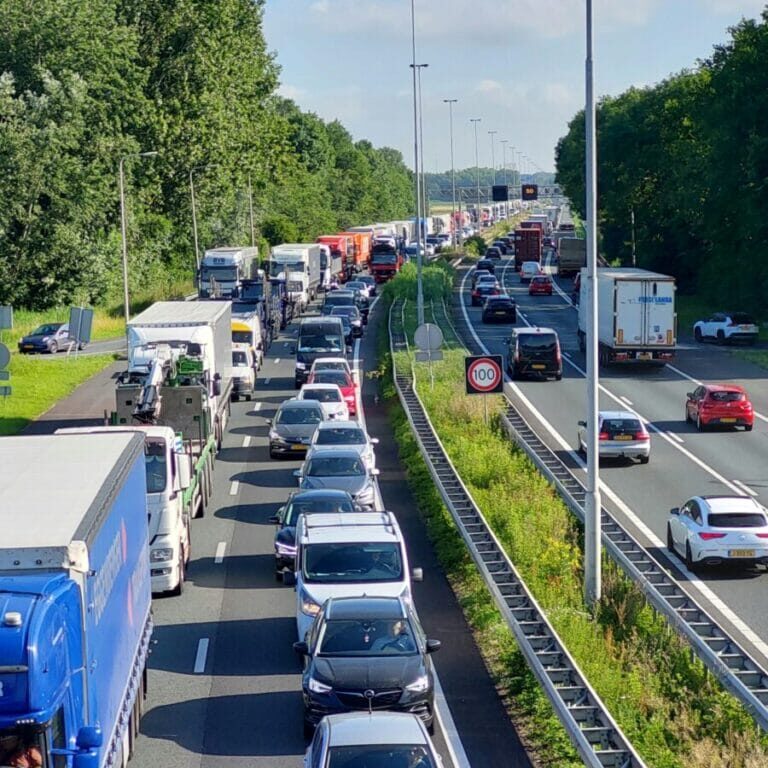
An argument against cars
Halifax would be a better place without them
The problem with cars extends far beyond their fuel source. Cars, whether powered by gasoline or electricity, contribute to a myriad of problems. They clog our streets, dominate public spaces, pollute our skies and kill people. Cities are better off without them.
Cars cause traffic jams
The sheer number of vehicles on the road results in persistent traffic jams, leading to long hours spent behind the wheel. Even if we electrified every car tomorrow, the fundamental issues would remain, because the problem isn’t just about emissions—it’s about how cars fundamentally alter the landscape of our cities.
Cars kill
According to Transport Canada’s National Collision Database, the number of motor vehicle fatalities in 2022 was 1,931, marking the second-highest count in the last decade. Injuries rose to 118,853 in 2022, an increase of 9.5 per cent from 2021 (108,552). These risks persist regardless of a vehicle’s fuel source.
Our dependence on cars fuels the oil and gas industry, which has indirect consequences, like pollution. Health Canada estimates that air pollution contributes to 15,300 deaths annually in Canada—slightly more than the number of Canadians who die in accidents such as car crashes, according to Statistics Canada. Air pollution also causes asthma and acute respiratory issues for many people.
Moreover, huge quantities of cars on the road increase the likelihood of collisions and congestion. Statistics Canada reports that there were 26.3 million registered road motor vehicles in Canada in 2022. Electric vehicles accounted for 3.0 per cent of light-duty vehicle registrations in 2022, up from 2.3 per cent in 2021. Even if we replaced every gas-powered car with an electric vehicle, over 26 million vehicles would still crowd our highways and byways.
Cars take up space we don’t have
In urban areas already grappling with severe housing shortages, parking lots consume valuable land that could otherwise be used for affordable housing or community green spaces. Places like Halifax designate large swaths of land for parking, even as rents rise and people struggle to find homes. Prioritizing parking over housing perpetuates the housing crisis.
Parking lots and curbside parking occupy enormous amounts of space—land that could be transformed into pedestrian zones, green spaces or public amenities. Consider the street outside your home: cars dominate the centre and line the curbs while people are relegated to the sidewalks. We are sidelined by cars.
Cars breed financial burden
Owning a car also imposes significant financial burdens. Beyond purchasing the vehicle, there are costs for insurance, fuel (whether gasoline or electricity), and parking fees. The average annual car insurance premium in Nova Scotia is $891, below the national average of $1,316. In 2022, gas prices in Nova Scotia peaked at $2 per litre, later falling below $1.70 per litre—still costing Canadians thousands of dollars annually. The average cost of parking in downtown Halifax is $2.50 per hour, meaning someone who parks for just one hour each day would spend over $900 per year.
There are better alternatives
Electrifying every car on the road would be nearly impossible. We would need to source materials for batteries and upgrade the power grid to handle the increased demand. Instead, we should focus on electrifying public transportation—buses, trucks, and delivery vans—because these modes of transport have a far greater potential to reduce traffic congestion and emissions.
When adequately funded and supported, public transit can alleviate many of the urban problems caused by cars, including pollution and traffic. A well-designed transit system can move more people with fewer vehicles, making it a more efficient solution for our increasingly dense cities. If we invested in public transit to such an extent that it renders personal vehicles obsolete, we may not even need to ban cars.
Major car manufacturers are already producing electric buses and commercial vehicles, making the electrification of these transport modes an attainable goal. Investing in this area, rather than focusing exclusively on personal electric vehicles, could lead to a more substantial reduction in urban congestion and pollution.
Now is the time to rethink our reliance on cars. Banning gas-powered vehicles is part of the solution, but more must be done. Cities must stop prioritizing the cars that pollute them. We need to demand urban planning that prioritizes people. Simply switching from gasoline to electricity won’t solve these problems. Let’s ban cars and build reliable, accessible public transportation.






